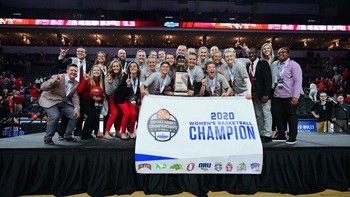Professors from The U appointed to national mental health post
The U.S. Department of Health and Human Services (HHS) is convening a group of 13 national experts, including Jacobs and Boyd, to develop recommendations on protecting, preserving and restoring individual and community health in catastrophic events. Subcommittee members were selected from among the nation’s preeminent scientific, public health and medical experts, including service delivery providers, researchers, representatives of at-risk groups, and state and local mental health and substance abuse authorities. USD is the only institution in the country with two appointees to this national subcommittee.
Jacobs, a professor with the department of psychology and clinical psychology training program, is a 20-year member of the faculty at USD. As director of the Disaster Mental Health Institute, he has presented national and international workshops, and he is active in fieldwork, training, program development and consultation in disaster psychology and psychological support nationally and internationally for the Red Cross and APA. As a disaster mental health manager for the Red Cross’ national disaster team, Jacobs has responded to events ranging from the Sept. 11 attack on the World Trade Center in New York City, Hurricane Katrina in New Orleans and the 2004 tsunami in South Asia to storms in South Dakota. He is presently designing systems to better care for Red Cross disaster responders.
Boyd, an enrolled member of the Seneca Nation of Indians and an associate professor of clinical psychology at The U for 16 years, serves as the faculty advisor for the Students of Color in Psychology Mentoring Program. She is also a member of the USD Disaster Mental Health Institute faculty and, nationally, she has presented at numerous diversity and mental health conferences and workshops. Boyd is the current president of Division 45 of the APA, which is the Society for the Psychological Study of Ethnic Minority Issues. Division 45 serves as the major representative body for psychologists who conduct research on ethnic minority concerns or who apply psychological knowledge and techniques to ethnic minority issues. Division 45 also promotes public welfare through research, applies research findings to address ethnic minority issues and encourages professional relationships among psychologists with these interests.
According to information released by HHS, the Disaster Mental Health Subcommittee will submit recommendations for discussion and deliberation to the NBSB within 180 days. The subcommittee’s recommendations will address communication, education and interventions before, during and after emergencies. Ultimately, information provided to the NBSB will be presented to the Secretary of Health and Human Services. Mandated by the Pandemic and All-Hazards Preparedness Act, the board provides expert guidance and advice to the HHS Secretary regarding activities to prevent, prepare for and respond to chemical, biological, nuclear and radiological health emergencies. More information about the NBSB and the Disaster Mental Health Subcommittee is available at www.hhs.gov/aspr/omsph/nbsb/.
A photograph of Jacobs is available for download at www.usd.edu/urelations/images/JerryJacobs.jpg. A photograph of Boyd is available for download at www.usd.edu/urelations/images/ElizabethBoyd.jpg.


